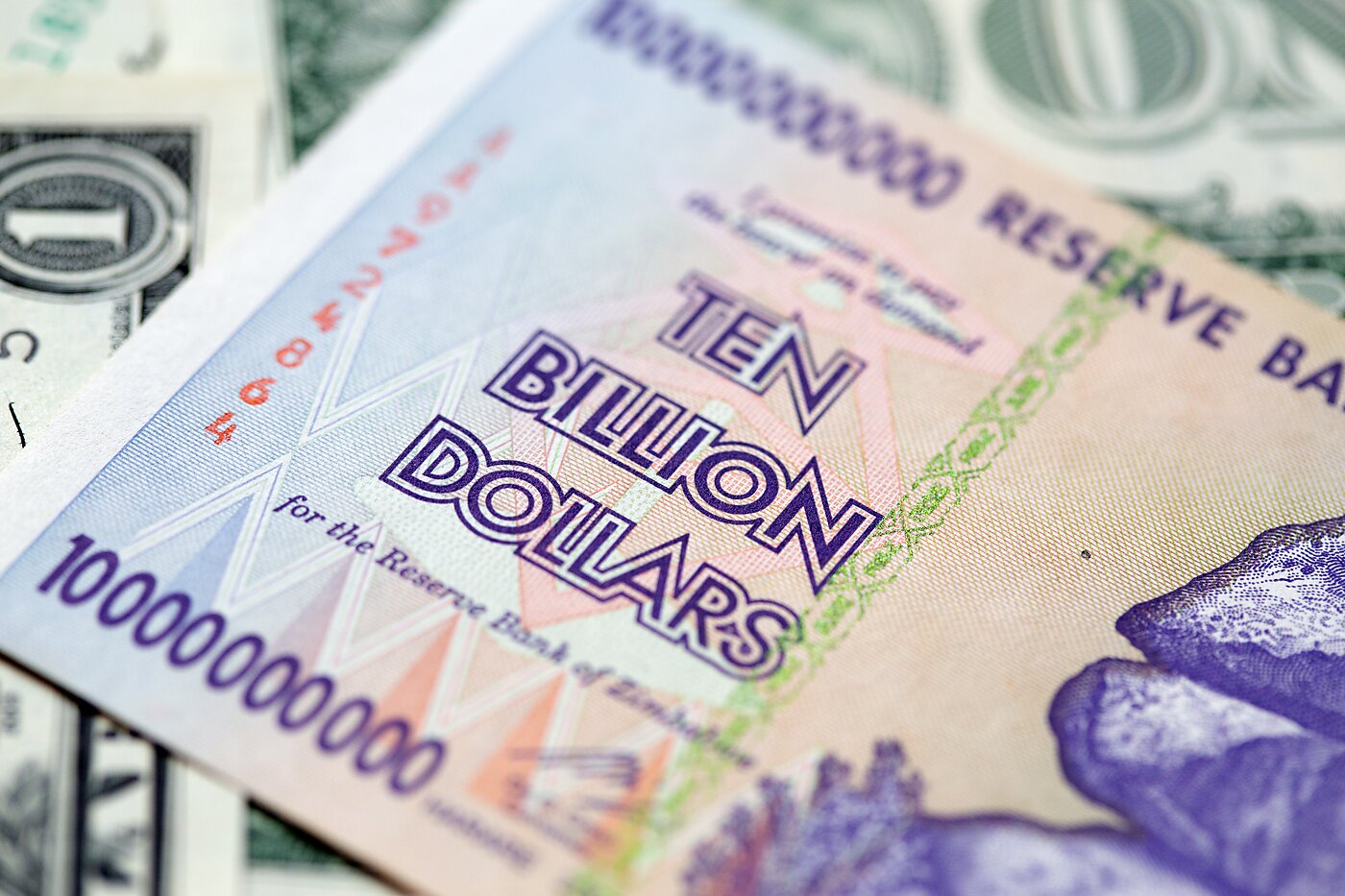In June 2019, the Zimbabwe government declared that official Z$ media would henceforth be the only money permitted. But transactors for an obvious reason—the extremely high inflation rate of the Z$—have continued to use foreign currencies as media of exchange and units of account in preference to the Z$. The newly announced penalties are designed to more effectively enforce the exclusive use of the Z$.
The Zimbabwe government’s chief motive for restrictions on foreign currency use is clearly fiscal. The power to print and spend into circulation a money that the public is compelled to use is a power to tax. It gives the government an important revenue source. It is a revenue source that the current Zimbabwe government, like previous ones, is exploiting so vigorously as to generate a hyperinflation.
The government claims other motives for giving itself a legal currency monopoly. In an August op-ed, the finance minister Mthuli Ncube argued that the Zimbabwe government needs its own currency to be able to devalue it as a means to encourage exports. But no one is fooled by such arguments.
The revenue from money-printing can be most effectively exploited with the help of restrictions against the public using better monies: for any monopolist, revenue is greater the less elastic is demand with respect to price. The less rapidly the volume of sales shrinks as the price rises, the more profitable the monopolist finds it to raise the price. For a monopoly issuer of fiat money, the real revenue from money-printing (aka “real seigniorage”) is greater the more effectively money-users are blocked from switching to alternative monies as the inflation rate rises, because then the real demand to hold the currency (which constitutes the real value of the “tax base” subject to the inflation tax) vanishes less quickly.
Expressions of concern to prevent the public from using any currency other than the domestic government’s currency, under the label of preserving “monetary sovereignty,” could also be heard last month in Europe. In an address to an OECD conference, France’s Minister of the Economy Bruno Le Maire made the following remarks[1] about Libra, the private global payment project that a consortium headed by Facebook is developing:
Libra would be a global currency owned by a single player that has more than 2 billion users on the planet. The monetary sovereignty of states is at stake. The monetary sovereignty of our nations is at stake. In states with weak currencies—I will not cite them, but there are many across the planet—Libra will replace sovereign currencies and challenge state independence. This possible privatization of a currency raises the risk of abuse of a dominant position. … Any failure in the functioning of this currency, in the management of its reserves, could create considerable financial disorders.
Le Maire went on to add the danger that “Libra would escape its obligations” to fight money laundering and the financing of terrorism. He concluded: “In these circumstances, we can not authorize the development of Libra on European soil.”
In a recent blog entry, J. P. Koning has cogently addressed Le Maire’s concerns about money laundering. As Koning suggests, it makes sense for someone who supports the anti-money-laundering rules currently imposed on banks to insist that like rules should be imposed on alternative payment providers. But proposing to ban the entry of new payment providers on grounds of money-laundering concerns is a simple non sequitur. I disagree when Koning writes that “Le Maire probably has a legitimate worry about monetary sovereignty.”[2] Anti-money-laundering is a question of payment service regulation, not of monetary sovereignty. I take the principle of “monetary sovereignty” to be the assertion that the state has a rightful monopoly in base money and the common unit of account.
Le Maire is, of course, correct that “states with weak currencies” might see their currencies lose market share to Libra if their residents were free to switch. But if Libra as a stronger currency is preferred by the public, and thereby drives out a weaker (more inflated) currency, this is reason to applaud Libra for better serving the public, not to condemn it. Given that the proposed Libra unit is an amalgam of the relatively less-inflated fiat currencies that currently exist, principally the US dollar, the question arises why popular dollarization of these weak-currency states has not already happened. For a state where the currency is severely weak, the most likely reason that such a currency retains a dominant status is that the state has erected legal barriers against the use of foreign fiat currencies, as Zimbabwe has. Such a state is likely to erect barriers against Libra as well. What is to be condemned are overly expansionary monetary policies that produce weak currencies, as in Zimbabwe, and anti-consumer legal restrictions that block consumers’ access to better monies, not any potentially better money on the grounds that it would erode state monopoly. In offering “monetary sovereignty” as a principle to be defended, Le Maire is implicitly offering the Zimbabwe dollar as a model to be defended.
________________
[1] Le Maire spoke in French. This is my Google-aided translation.
[2] To be fair, Koning goes on to effectively dismiss Le Maire’s concerns that the euro might lose its dominant status in France.


